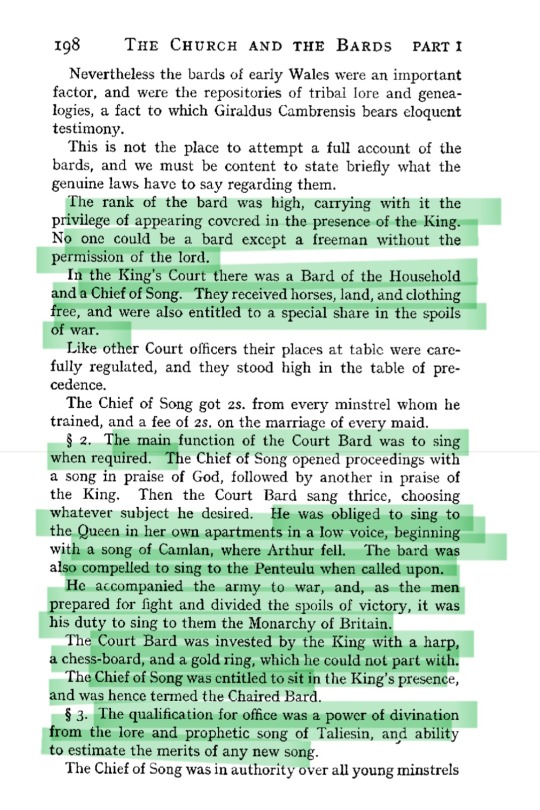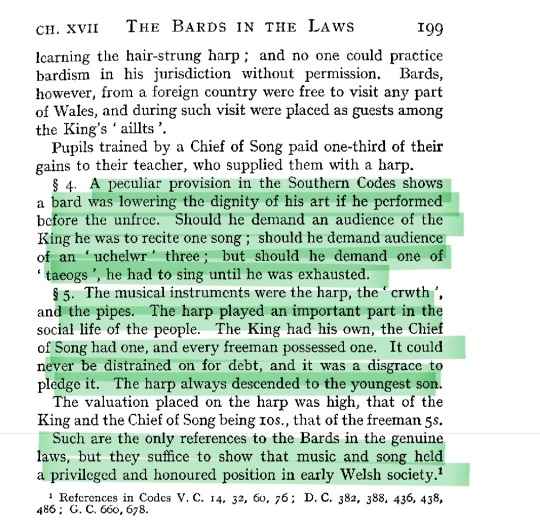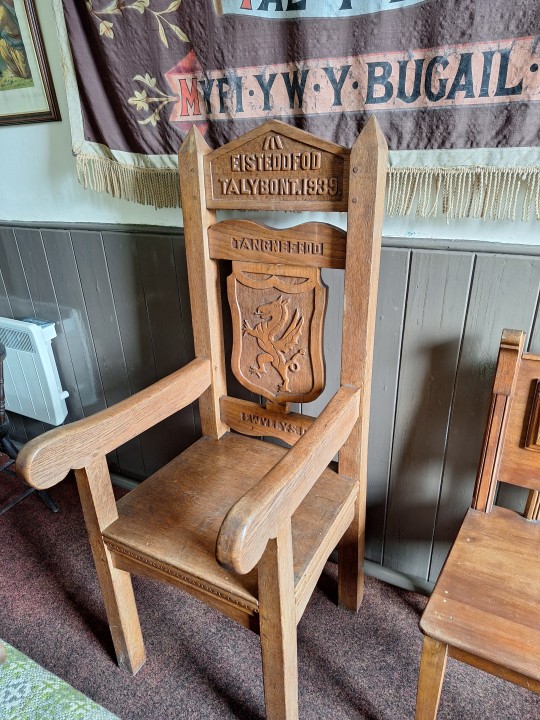#edward welsh
Explore tagged Tumblr posts
Text





various ttrlisms from march-now. movie and book. ummmm. fife is really funny to me. like succession greg
62 notes
·
View notes
Text
staring the fuck out of him...
#the thin red line#blog#terry shot a lot of scenes in two versions: with dialogue and then completely silent but communicating the same thing#i feel like this shot is from that take#& Why he unblinking?!?!.#edward welsh#robert witt
3 notes
·
View notes
Text
FINALS: Manic Street Preachers VS Blur VS Suede



MANIC STREET PREACHERS
BLUR
SUEDE
#suede#suede band#blur band#blur#manic street preachers#manics#britpop#britpop 90s#90s britpop#british music#welsh music#cool cymru#90s alternative#glam punk#90s indie#90s rock#90s music#90s#Spotify#brett anderson#damon albarn#richey edwards#nicky wire#james dean bradfield#sean moore#alex james#graham coxon#dave rowntree#bernard butler#mat osman
144 notes
·
View notes
Text

30 years since richey edwards disappeared.
i reimagine the steps you took, still blinded by your intellect.
#richey edwards#manic street preachers#the manic street preachers#4real#music#spotify#music tumblr#alternative music#90s music#the manics#nicky wire#james dean bradfield#sean moore#90s nostalgia#90s#celeb news#celebrity news#music news#wales#welsh music
90 notes
·
View notes
Text

16/11/24
photographer uncredited but I think it’s Valarie Phillips
Follow for more daily Richey pics
#richey edwards#richey james#90s alternative#90s music#britpop#glam punk#cool cymru#manic street preachers#manics#welsh music#daily blog#Gt
59 notes
·
View notes
Text






The Talyllyn Railway running shed. Detail shots of the locomotives.
During my visit, our guides took us off of the train and into the running shed for a short walkthrough tour. By this time, Talyllyn had been put away. Edward Thomas hadn't run that day, and so stood cold but magnificent, wearing works grey, at the back. In the adjoining shed, Sir Haydn had just returned from her visit to the Corris, a visit which saw the Corris' own No. 3 make its way to the Talyllyn for a while.
So, we have represented in this shed, no less than three former builders: Fletcher Jennings, Kerr Stuart, and Hughs. Not pictured is the little Ruston diesel, Midlander. She was off her wheels in the shop.
#talyllyn railway#ttte#ttte sir handel#ttte skarloey#ttte peter sam#edward thomas#sir haydn#steam locomotive#skarloey railway#steam train#industrial history#wales#welsh history#photography#steam#train#my photos#cymru#world history
45 notes
·
View notes
Text

#first few words say “edward personally...” btw#weezer#weezer imagines#weezer fanfiction#mikey welsh
30 notes
·
View notes
Text
(Okay, so I know I said I was gonna do marriage laws and queenship stuff in regards to welsh laws - and I will! - but here is a nice, quick round-up about BARDS
*SHREDS ON A HARP*

Okay, so this is inspired by @gawrkin 's recent posts on bards because the laws surrounding them are SUPER FUN. And Wales LOVES LOVES LOVES their bards. (Myself included.)
Right, so, without further ado, ONWARDS.
*shreds harp aggressively again*


So the 'spurious triads' the author is referring to are presumably to do with IOLO MORGANNWG *ominous thunderclap*.
I shan't go too much into him as suffice to say, we gotta keep this shit SHORT, but he was a massive forger from Glamorgan (that's what Morgannwg means. It's his bardic name. Iolo is Edward.) who made up a bunch of triads and Celtic / medieval manuscripts including some of the Welsh Triads. Also, he is the reason why the Eisteddfod has the Gorsedd of bards.
So a mixed bag, y'know.
ANYWAY. They're very high-rank on account of being the literally Yellow Pages of Celtic and medieval Welsh societies. If you had a question that needed answering you'd ask a bard. They were like Google. They would know a man's lineage (and Welsh lineages are confusing. There were men named Dafydd ap Dafydd ap Dafydd ap Dafydd. No, I'm not joking.) battles, monarchs, myths, songs, stories. Anything.
And they had to SING. And play an instrument. Namely either a harp or a crwth.

This baby is crwth! It's a little like a violin but much darker in tone. They were extinct for a while but they've undergone a revival and they are FUN!
Also, the court bard had to SING to the queen about Camlann 'in a low voice.' I've heard various reasons suggested as to why and one of them is to remind her that Gwenhwyfar's infidelity was the main reason for King Arthur's downfall, but I think it's probably because of The Slap. Idk though. I'm just guessing, buddies.
Still, it's cool that the queen got a special sing-song.
Also, the bard being 'invested with a chess board' suggests to me that the game of Gwyddbwyll that Arthur and Owain play in the Mabinogion signals that they're bards. Gwyddbwyll being the type of chess the bards would've been familiar with. Plus, we know Arthur is somewhat of an amateur bard (Culhwch and Olwen being the prime example where he sings his terrible englyn about Cai to his face. Arthur, ur a fuckin BASTARD.) so it's in keeping with his character.

Also, I think it's adorable that the harp 'always descended to the youngest son.'
If you want a story that deals with bards and their privileged position in Welsh society and also wants ur heart RIPPED OUT may I suggest 'The Assembly of the Severed Head' by Hugh Lupton. It deals with a bard in a monastery after he's almost perished in a raid and the monks writing out the Mabinogion so they can give it to Llywelyn Fawr. It deals with war, love, loss, and also stonking good historical context. Also lots of poetry!!!!
Final fact: bards in Wales weren't wiped out by Edward the First. That's a fuckin myth. Don't come round here with ur fuckin myths. Old Longshanks has done enough already. May he eat shit.
(Also, Taliesin gets all the good rep but what about my boy Aneirin?)
Okay, BYEEEEE!!!!
P.S.: have an Eisteddfod chair!

#wales#the laws of hywel dda#welsh bards#welsh laws#the laws of wales#arthuriana#arthurian legend#welsh mythology#mabinogion#welsh history#hanes gymraeg#welsh music#miwsig gymraeg#welsh traditions#there were also additional things about bards and how much their marriage payments were set at but that's for marriage laws baby!#queen guinevere#gwenhwyfar#king arthur#culhwch ac olwen#arthurian literature#the mabinogion#welsh myth#welsh society#bards#celtic laws#iolo morgannwg unfortunately#edward i'm beating u up u fuckin wet cat of a man#y mabinogi#the battle of Camlann#arthurian mythology
48 notes
·
View notes
Text

Babe wake up another Agravaine solo quest story just dropped and he's a heartbreaking collection of contradictions that feels totally in-character. Bronwyn: A Welsh Idyll by Edward Thomas.
#arthurian preservation project#arthuriana#arthurian legend#arthurian mythology#arthurian literature#sir agravain#sir agravaine#bronwen a welsh idyll#edward thomas#quotes#my post
28 notes
·
View notes
Text

(22/10/24)
photo taken off pintrest (‘MM as a photographer? Idk who that is)
follow for more daily Nick pics
@dailyricheyedwards is also a thing now
#Nicky wire#90s music#manic street preachers#manics#cool cymru#90s alternative#glam punk#britpop#richey edwards#sean moore#james dean bradfeild#Welsh music
23 notes
·
View notes
Text


welsh
47 notes
·
View notes
Text

wonderful welsh moment
9 notes
·
View notes
Text
ROUND 4: The Stone Roses VS Manic Street Preachers


THE STONE ROSES
MANIC STREET PREACHERS
Manics for me
#The stone roses#manic street preachers#manics#britpop#90s music#spotify#british music#90s rock#britpop 90s#90s#tournament poll#90s britpop#90s indie#cool cymru#madchester#manchester#welsh music#ian brown#nicky wire#richey edwards
44 notes
·
View notes
Text
who is the princess of wales?
#the manic street preachers#manic street preachers#catatonia#richey edwards#cerys matthews#music#music tumblr#90s music#spotify#artists on tumblr#wales#i love the welsh
21 notes
·
View notes
Text

E. Prosser Rhys won the Crown in Pontypool National Eisteddfod with 'Atgof' in 1924.
Influential in his life as a poet, editor, journalist and publisher, Prosser Rhys is remembered today for winning the Crown in the National Eisteddfod of Wales in 1924. As influential as his winning poem, ‘Atgof’ was, and continues to be, Prosser even more profoundly affected Welsh-language writing in his life than is remembered today.
Edward Prosser Rees was born on the 4th of March 1901 in Trefenter, Mynydd Bach in Ceredigion, and christened on the 9th of March at Capel Bethel. His father was a blacksmith, David Rees, and his mother was Elizabeth Rees. Prosser came from a family of blacksmiths, and they later moved to Morfa Du in Trefenter (after Prosser had moved away, in March 1918). Previously, they had lived in Llainffwlbert until 1900, where they had their previous six children.
Prosser Rhys attended Cofadail Primary School in Trefenter then Ardwyn Grammar School in Aberystwyth in 1914. Other writers, academics and politicians were educated here, who were known as 'Old Ardwynians'. His early academic success was then marred by ill health - he was diagnosed with Tuberculosis at a young age, in 1915, which affected him for the rest of his life, but immediately kept him home for the next 3 years of his life.
Still, his name started appearing in Welsh writing as early as 1916, with the poem ‘Y Fam a’i Baban’ (The Mam and her Baby) in Baner ac Amserau Cymru, where he was published as E. Prosser Rees (under the pseudonym/ffugenw Eiddwenfab) from Trefenter, Llangwyryfon, Ceredigion. In 1917, he wrote eloquent letters to ‘Y Darian,’ a radical Welsh-language paper, where he first wrote briefly about joining a patriotic union, and the Eisteddfod. The latter was fitting as he next appeared in Y Darian in 1918 for his early Eisteddfod wins, then in local Eisteddfodau, listed within the winners from Ceredigion. He then appeared several times in Y Darian as a part of ‘Aelwyd y Beirdd,’ where he’s described as a young poet with great potential, at only 17, the brother of Reverend Wyre Rees.
Clearly, Prosser wrote, competed and performed his poetry quite a lot as a teenager. One of his early poems appears in ‘Cymru,’ a monthly Welsh-language journal founded by O.M. Edwards in 1891. It was in 1919 that ‘Canu’r Merched’ by E. Prosser Rhys appeared in the journal ‘Cymru’. This is the earliest (that I found) of his poetry appearing published under this name. Note that there are occasionally mentions of ‘Prosser Rees,’ his birth name, as well. As Prosser Rees, he also published a poem in 1917 in The Cambrian News and Merionethshire Standard in sympathy to Mr and Mrs Thomas Evans of Penbont, who lost their son, David Morgan, in France during the First World War.
Prosser worked as a clerk at Western Ocean Colliery in Nant-y-Moel, Ogmore Valley, before his community saw him coming back from the ‘sowth’ (south) as a journalist. He was at Nantymoel, apparently living with one of his brothers, John, who was a coal miner. He was still receiving treatment for tuberculosis and apparently then returned to this family in their new home in Morfa-Du. He then worked at the Liberal newspapers of the Welsh Gazette in Aberystwyth and Herald Cymraeg in Caernarfon in 1919 (where he worked with Morris T. Williams). He moved back to Aberystwyth in 1921 and became the editor of Baner ac Amserau Cymru in 1923, when they moved their offices from Denbigh to Aberystwyth.
In 1923, Prosser's poetry was first published in a book - Gwaed Ifanc with another poet J.T. Jones (John Tudor Jones). As the title suggests, they were proud of being the ‘new blood’ of Welsh poetry and writing, with Prosser then being 22 and J.T. Jones being 19 years old. There was certainly some backlash to that and the book was met with some controversy, also for their poetry being more sexual than older poets of the time. There was already a tradition of the new kind of Welsh writing, started by T H Parry-Williams’ win in the Eisteddfod in 1915 with ‘Y Ddinas,’ and Rhys was aware of these new ideas of challenging Welsh writing, the Eisteddfod and therefore Welsh-language society, which he was inspired by and sought to be a part of - and succeeded. This was an attempt to challenge the writing of older poets, as well as bring attention to the newer crop of younger writers, the men who’d survived the First World War and demanded attention.
He of course especially challenged the status quo of the Eisteddfod when he won the Crown in 1924 in the Pontypool National Eisteddfod with his poem ‘Atgof’ (Memory - or also sometimes translated as Reminiscence). This long ‘pryddest’ poem, follows a ‘llanc synhwyrus’/‘sensible lad’s journey into exploring his sexuality, from seeing ‘Sex’ ruin his parents’ relationship, to exploring his sexuality with women, and then with a man as well (who was likely Morris T. Williams), while struggling against the morals and virtues of Welsh society and religion. The judges of the Eisteddfod were at odds, one finding it to be immoral and the others praising it.
Of course, when Prosser won, the reactions were scandalized and ‘Atgof’ became quite controversial, for its explicit discussions of sex and of course the same-sex part of the poem. It has since been called ‘homoerotic’ by many writers, while today may be seen more as a bisexual poem, or queer one. Mihangel Morgan, writing in Queer Wales, finds this to be a negative depiction of homosexuality and downplays the significance of ‘Atgof’ as a gay poem.
A’n cael ein hunain yn cofleidio ‘dynn;
A Rhyw yn ein gorthrymu; a’i fwynhau; A phallu’n sydyn fel ar lan y llyn…
And finding ourselves in a tight embrace With Sex overwhelming us; and enjoying it;
And suddenly stopping as above the lake…
These lines describe the same-sex interaction and indeed it doesn’t take up a large amount of the poem, but Mihangel Morgan’s disappointment seems to come from the poem not being homosexual enough. And indeed it isn’t, but reads as a bisexual poem that takes us through Rhys’s whole journey of realising and battling with his sexuality at this age. It still resonates with much of the LGBTQ+ community, especially when realising how explicit it was for 1924 (or it wouldn't have been so controversial), 40 years before the decriminalization of homosexuality, and its win in the Eisteddfod was well, well ahead of its time.
On the other hand, later on in Prosser’s life, it was suggested that he was so shocked by sodomy in the writing of someone else to not publish them. There is the possibility of Prosser’s viewpoints and own sexuality changing in his life, though this is merely speculation that Prosser was ‘shocked’ by writing of homosexuality. There are many possibilities here when it comes to Prosser’s own feelings and sexuality, but it is certain that they have had a great influence on LGBTQ+ writing and the community in Wales and particularly in Welsh.
‘Atgof’ and Prosser were also mentioned in US Time Magazine in 1924, adding to evidence of the influence and legacy of this poem. Internationally, we see links in the poems to the sexology and psychiatry of the time - the psychoanalyst Ernest Jones (and possibly abusive husband of the composer Morfydd Llwyn Owen) mentioned the poem in a letter to Sigmund Freud, though it’s unclear that either actually read the poem.
Caradog Pritchard wrote in his autobiography that as a friend of Prosser’s and Morris T. Williams’ that he believed the man Prosser wrote about was Morris Williams, and this has been accepted as likely the truth since then (though there were always rumours about this). Morris T. Williams was close to Prosser, when they were roommates in Twthil near Caernarfon, while working at 'Herald Cymraeg,' and they exchanged letters after which show their close relationship - this was before Morris married Kate Roberts and they together bought Gwasg Gee. All three remained close, being friends and remaining in the same social circles as poets, as well as in Welsh publishing. More recently, it has been theorized that Kate Roberts also was queer, based on her own personal writing, as well as her short stories which are about romantic relationships between women (such as 'Christmas' and 'The Treasure'). Morris T. Williams died in 1946, a year after Prosser Rhys, after a long struggle with alcoholism.
‘Atgof’ was published as a booklet, with a translation ‘Memory’ by Hywel Davies also published as a booklet. The poem reads less explicitly than the Welsh version, though it was praised at the time. It can be read here - though a modern English translation is definitely needed. 'Atgof' can also be read here.
In 1928, Prosser married Mary Prudence Hughes in Aberystwyth, which was when both he and she took the surname ‘Rhys’. They had one daughter, Eiddwen Rhys. He founded Gwasg Aberystwyth also in 1928 and began publishing books, with Gwasg Aberystwyth growing significantly in years to come.
As editor of Baner ac Amserau Cymru, Prosser encouraged more poets to write and publish their work. Rhys founded Y Clwb Llyfrau Cymraeg/The Welsh Books Club in 1937. This was a subscription of Welsh books, where readers would receive 4 books a year for half a crown, and which published 45 volumes up until 1945. As successful as it was under Prosser, after his death, it was decided that there were not enough Welsh-language writers to continue it.

(Executive committee of 'Plaid Genedlaethol Cymru,' 1927- Lewis Valentine, Ambrose Bebb, D. J. Williams, Mai Roberts, Saunders Lewis, Kate Roberts, H. R. Jones, Prosser Rhys.) Prosser Rhys was a founding member of Plaid Cymru, founded in 1925. He was also the editor of ‘Y Ddraig Goch’ with Saunders Lewis and Iorwerth C. Peate, which Prosser also helped to form with H. R. Jones, though he was initially opposed to the idea due to lack of funds. However, Prosser became vocally opposed to Saunders Lewis’ right wing views. He wrote in Y Faner that many of Plaid Cymru’s members had come from the Labour party or Liberal party, or were radicals who came from no political party, where none were supportive of the views appearing in the Daily Mail, implying that Saunders Lewis’ views were too close to the matter, but that most Plaid Cymru supporters were personally too loyal to voice their concerns over this. The expulsion of Prosser from the party was discussed and suggested but Saunders Lewis opposed this.
Following his many successes, Prosser and his family moved to 33 North Parade, Aberystwyth, where he lived until his death.

After his health had deteriorated again from 1942, Prosser died in 1945 - at the age of 43, and less than a month before his 44th birthday. He is buried at Llanbadarn Fawr Cemetery, with his grave quoting T. Gwynn Jones: “Gwyrodd êfo î’r drugaredd fawr, Ni wyr namyn Duw ddirgelwch ei wên.” Here Mary Prudence Rhys, his wife, is also buried, who died in 1991, at the age of 87. They are also buried with William Dewi Morris Jones, who died in 1983, aged 56. Rhys’s death was certainly a loss to Welsh publishing and writing.
Gwasg Aberystwyth was bought by J. D. Lewis & Sons from Llandysul after Prosser’s death, the founder of Gwasg Gomer, who continued the Welsh Books Club and took over publishing of the club’s books until 1952. This, however, did follow a legal disagreement between Mary Prudence Rhys and Morris T. Williams, who was supposed to get the first offer and chance at refusal for Gwasg Aberystwyth, according to legal documents that Prosser and Morrisagreed upon, which Morris Williams did not feel like he had gotten.
Cerddi Prosser Rhys was published in 1950 by Gwasg Gee, Morris’s first collection entirely of his own poems - published 5 years after his death. Edited by J.M. Edwards, a fellow poet who competed in Eisteddfodau and was from a similar area to Rhys, Edwards also writes the introduction of the poetry collection. He notes that he decided that 4 years after Prosser’s death was enough time to finally publish a whole collection of Prosser’s best poems (the introduction was written in July, 1949, with the book published in February, 1950.) He writes that his previous poetry collection, in ‘Gwaed Ifanc’, was ‘a volume that attracted a lot of attention and also brought a new, daring note to the world of Welsh poetry of the period, something that was urgently needed.’ His memories of Prosser while growing up show he was a well-known poet even in his youth, who Edwards and others in his own school had heard of before meeting, who was known for competing and finding success in many local Eisteddfodau around Wales.
Of his poetry found in Cerddi Prosser Rhys, Edwards notes that ‘Y Gof’ (The Memory) is a tribute to his parents and his early life in rural Wales. His two sonnets he most praises are ‘Y Pechadur’ (The Sinner) and ‘Duw Mudan’ (Mute God). Of ‘Atgof,’ Edwards significantly notes that it was "a bold poem that created a lot of excitement and was praised by some but damned by others. The saddest feature of the whole event was that it reflects an attitude of thought in Wales which is too ready to judge the values of the world of the arts by the wrong standards." The introduction finishes by repeating what many others have said about the premature loss of Prosser to the world of Welsh writing and publishing. Edwards also hoped that there would also be a collection of Prosser’s prose, which unfortunately has not yet come to be.
‘Mab ei Fam’ (His Mother's Son) is to "M.T.W," likely Morris T. Williams - similarly to Strancio, which was translated by Mihangel Morgan as ‘Fooling About,’ which is to: ‘I gyfaill annwyl a fu’n cyd-letya â mi’ (To a dear friend who lodged with me)
Do, bûm yn flin. Ond weithian gwybydd di Fod Fflam yn llosgi ynof, ac aml dro Yn llamu ar draws fy nghorff materol i, A’m hysu hyd fy nghyrru i maes o’m co’,
A strancio a wnaf eto rhag fy ffawd Nes torro’r Fflam ei ffordd o’i charchar cnawd.
Yes, I was angry. But sometimes you must know That a Flame burned within me, and often Sprang from my material body Plaguing me until it drove me mad And I would taunt my fate Until the Flame broke free of its prison of flesh.
-Mostly translated by Mihangel Morgan.
As with ‘Atgof,’ Mihanel Morgan downplays Strancio by stating it to be cryptic and guarded - while I'd argue that the confession of his feelings towards a man in the 1920s is explicit for its time, especially following on from the Victorian poetry that was popular before the ‘New blood’. While Mihangel Morgan says it is ‘assumed’ to be about Morris T. Williams, the dedication at the start of the poem is clear enough, at least historically, to Morris T. Williams, especially when a previous poem also is dedicated to him.
It wasn’t until 1980 that Prosser Rhys was celebrated with a book about his life, by Rhisiart Hincks. T. Robin Chapman wrote in Y Traethodydd in 2006 that Hincks probably knew of the nature of Rhys’s relationship with Morris T. Williams yet it was omitted, from the only whole biography of Prosser Rhys. This is a sign of the times in which it was written and published but shows the need now to write biographies of Rhys that include what was previously excluded, his queer identity. Hincks mentions how Williams quickly became Prosser's best friend ('ei gyfaill pennaf') when they met in Caernarfon, that they moved together to 15 Eleanor Street and that it was Prosser who introduced Williams to literature. ‘Cyfeillgarwch clos’. He also mentions that such closeness led to spats, once when they fought all night, which does show the intensity of their relationship. Perhaps, this subtext Hincks hoped to be understood by the audience of the time. Of ‘Atgof,’ Hincks notes that Prosser had previously expressed that there was a lack of sex in Welsh in recent poetry, which he blamed on the chapel. This biography remains the most detailed on Prosser’s life.
A monument on Mynydd Bach, overlooking Llyn Eiddwen near to Trefenter, where Prosser was born and lived in his childhood, was unveiled in 1992, during the National Eisteddfod in Aberystwyth. Including Rhys, the monument, ‘Cofeb i Feirdd y Mynydd Bach’ celebrates 4 poets from the local area. J.M. Edwards from Llanrhystud also won the Crown in the National Eisteddfod, in 1937, 1941 and in 1944, and wrote the introduction to Cerddi Prosser Rhys. All 4 of the poets named on the plaque of the monument were successful in the Eisteddfod. B. T. Hopkins (Benjamin Thomas Hopkins) was a successful poet from Ceredigion, who lived and farmed on Mynydd Bach. T Hughes Jones (Thomas Hughes Jones) was a Welsh poet and writer from Ceredigion who won a medal in the National Eisteddfod of 1940 for a short story, ‘Sgweier Hafila,’ which was partly judged by Kate Roberts.
Interest in Prosser, his life and career, has been renewed by research into Welsh LGBTQ+ history and writing. Notably, in 1998, a historical docudrama called ‘Atgof’ aired on S4C, directed by Ceri Sherlock, which depicted Prosser writing the poem and his relationship with Morris T. Williams, which was represented as a sexual and romantic one. There was controversy around the film, similarly to 'Atgof' the poem, with some questioning how they depicted the relationship (with some speculated, fictional details) and some also questioning whether it should be depicted or speculated about at all. Despite the discourse, Prosser Rhys had already become an inspiration to the Welsh LGBTQ+ community.
In 2019, the show ‘Corn Gwlad’ was performed at the National Eisteddfod in Llanrwst, created by Seiriol Davies, which celebrated Prosser’s win at the Eisteddfod and depicted his feelings towards Morris T. Williams. It was then a work-in-progress show, with comedy and music, and part of the ‘Mas ar y Maes’ programme of events at the National Eisteddfod, which are especially for the LGBTQ+ community, or which may be relevant to the LGBTQ+ community. Prosser was also featured in ‘Mas ar y Maes’ events with ‘Cariad yw Cariad,’ and is of course heavily featured in the 2024 National Eisteddfod in Pontypridd, on the centenary of Prosser Rhys winning the Crown with 'Atgof.' 'Atgof' was also the theme of the poems submitted to the 'Coron' - which was won by Gwynfor Dafydd.
The lasting legacy of Prosser Rhys is to be a significant voice of this community from 20th century Wales, and an icon especially for Welsh language LGBTQ+ people, queer men and bisexual people. This is what has significantly brought Prosser Rhys back into the public eye in the 1990s, with the film Atgof, and in the 2010s with LGBTQ+ History Month, and in the 2020s around the 100th anniversary of his Eisteddfod Crown winning with ‘Atgof’. Prosser also had a significant impact in Welsh publishing, Welsh society, in his article writings, in politics. Prosser Rhys was a fascinating, complicated person, a passionate advocate for Welsh poetry, writing and publishing and is a hero of the communities to which he belonged, including the local community in Ceredigion and West Wales.
#edward prosser rhys#prosser rhys#e. prosser rhys#eisteddfod#national eisteddfod#lgbtqia#queer history#welsh history#history#wales#bisexual history#gay history#queer welsh history#this is a very long blog - this can't really be called a blog#Welsh version incoming soonish#posting this in the middle of the night bc I go to the Eisteddfod tomorrow
32 notes
·
View notes
Text

Jenkin Edwards
Gender: Male
Sexuality: Gay
DOB: 3 November 1998
Ethnicity: White - Welsh
Occupation: Reality star
34 notes
·
View notes